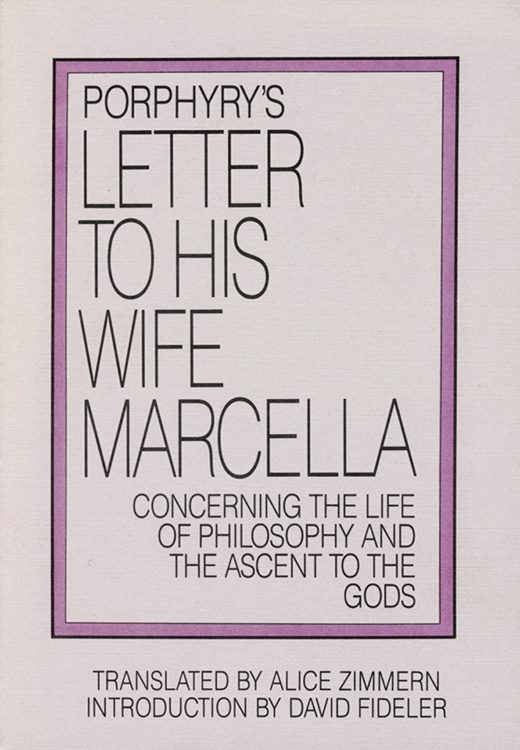Porphyry's Letter to His Wife
Concerning the Life of Philosophy and the Ascent to the Gods
With an introduction to the life of Porphyry and an overview of Neoplatonic thought by David Fideler.
Show more Show less
"Porphyry, a scholar and philosopher of Semitic descent, lived during the second half of the third century C.E. Migrating first to Athens to study under the rhetorician Longinus, then to Rome to study with Plotinus, he became, after the latter's death, the leader of the school of Neoplatonism. His eclecticism and mysticism fashioned that philosophy into a weapon for the defense of Hellenistic culture against the onslaught of Christianity. Of his more than seventy-five works, this letter is one of a handful that survive. David Fideler, whose credentials are not mentioned, has ably set forth its place in Porphyry's ethics in an introduction that takes up more than half of this slight volume. He exaggerates, however, when he says "an unsuspecting reader ... might easily take the work to be an exposition of the highest Christian moral philosophy," and other commentators are not so certain that Porphyry did not intend his intellectual counterattack of the Christians as a justification for their persecution. The letter itself begins promisingly with a touching and witty attempt to console Marcella for his absence by likening it to the soul's need to absent itself from the body. As he elaborates on the purification of the soul, however, we lose the sense of a man corresponding with his wife, but he resumes this tone near the end of the manuscript. Not renowned for original thought, he nevertheless can offer something to chew on when he employs his usual epigrammatic style, e.g., "it is by their good hopes good men are superior to bad ones." When he is more discursive, the stiffness of this ninety-year-old translation becomes more evident than the need for this reprint ever does." --From Independent Publisher





